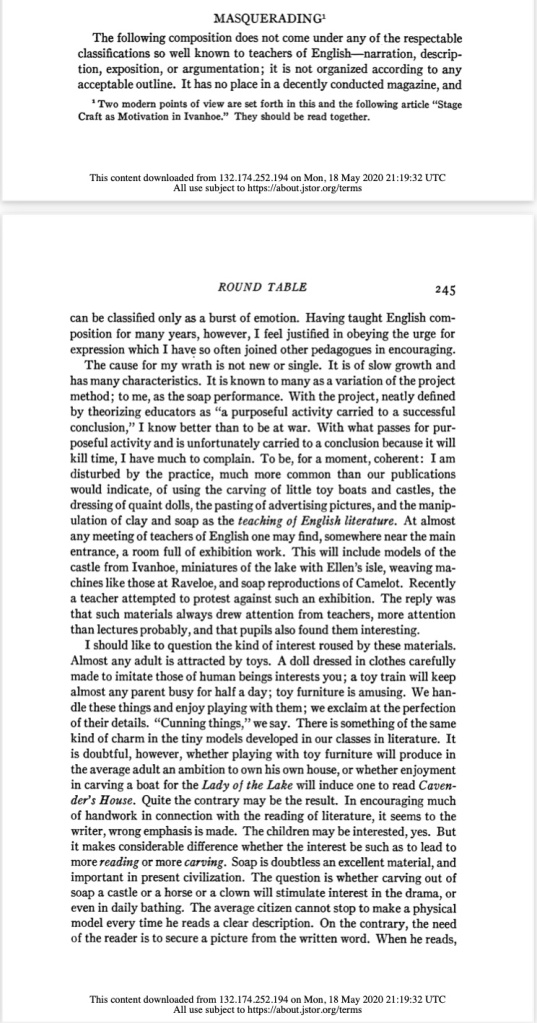LaBrant, L. (1931, March). Masquerading. The English Journal, 20(3), 244-246. http://www.jstor.org/stable/803664
LaBrant offers a passionate confrontation of the misapplied project method, focusing on how its misuse has manifested in English classes.
Quoting LaBrant:
The cause for my wrath is not new or single. It is of slow growth and has many characteristics. It is known to many as a variation of the project method; to me, as the soap performance. With the project, neatly defined by theorizing educators as “a purposeful activity carried to a successful conclusion,” I know better than to be at war. With what passes for purposeful activity and is unfortunately carried to a conclusion because it will kill time, I have much to complain. To be, for a moment, coherent: I am disturbed by the practice, much more common than our publications would indicate, of using the carving of little toy boats and castles, the dressing of quaint dolls, the pasting of advertising pictures, and the manipulation of clay and soap as the teaching of English literature. (p. 245)
It is doubtful, however, whether playing with toy furniture will produce in the average adult an ambition to own his own house, or whether enjoyment in carving a boat for the Lady of the Lake will induce one to read Cavender’s House. Quite the contrary may be the result. In encouraging much of handwork in connection with the reading of literature, it seems to the writer, wrong emphasis is made. The children may be interested, yes. But it makes considerable difference whether the interest be such as to lead to more reading or more carving. Soap is doubtless an excellent material, and important in present civilization. The question is whether carving out of soap a castle or a horse or a clown will stimulate interest in the drama, or even in daily bathing….On the contrary, the need of the reader is to secure a picture from the written word. (p. 245)
That the making of concrete models will keep interested many pupils who would otherwise find much of the English course dull may be granted. The remedy would seem to be in changing the reading material rather than in turning the literature course into a class in handcraft. (p. 246)
First pages:


Excellent analysis…I can think of all the times I wanted to scream at my humanities teacher for making us do these kinds of pointless “arts and crafts” projects…I mean it’s great that your not lecturing for an hour but that doesn’t justify this….it’s doing something different just for the sake of doing something different which is always dangerous